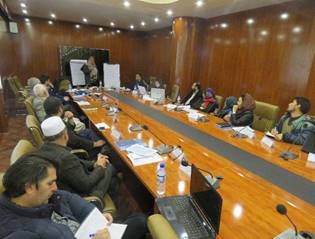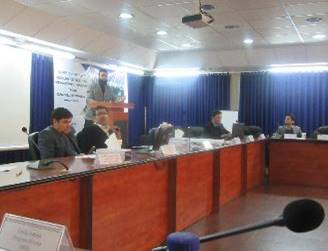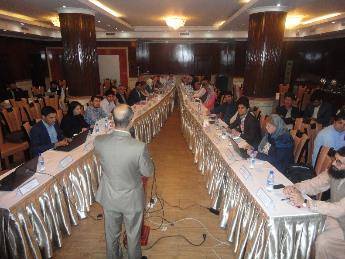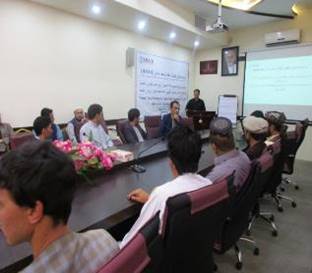RESEARCH & STUDIES:
We specialize in assisting clients in measuring the impact, effectiveness, and sustainability of their programs, policies, and organizations. Our approach centers around learning and accountability, aiming to understand what strategies yield positive outcomes. We utilize a combination of evidence synthesis, impact evaluations, and baseline, midterm, and endline evaluations to monitor patterns of change and identify gaps. Our data collection and analysis methods are participatory and mixed-method, ensuring comprehensive insights. Additionally, we offer independent monitoring services, providing stakeholders with ongoing intervention progress updates to aid decision-making.
ADDED VALUE:
SSDA offers its clients a participatory assessment methodology, Quantified Participatory Assessment (QPA), which can quantify qualitative information, using PRA tools being used by UN organizations and many INGOs in Afghanistan for assessments and evaluations.
Her professional staff is blended with national and international consultants from India, Sri Lanka, Pakistan, USA etc. who have extensive sectoral experiences and skills.
RESEARCHES, STUDIES WE DID:
The overall purpose of the Study was to document the success, or lack of success, in introducing and sustaining changes in community sanitation practices after exposure to the CLTS method in rural Afghanistan. Show more…
WASH in Schools was funded by UNICEF. It was carried out in eight provinces in five zones. The purpose of this independent evaluation was to evaluate the implementation of the two key components of the WinS programme Show more…
The National Risk and Vulnerability Assessment (NRVA) surveys in Afghanistan (are the most comprehensive analysis on poverty and vulnerability in the country). The study was commissioned to understand the extent to different sections of rural Afghan society. Show more…
It was a field based research conducted in Uruzgan province. The overall purpose was to collect data on number of aquifers and their recharge rate (groundwater), Local water demand (focused on the most important water demand), Intake systems, number of dug/tube wells, Show more…
It was a field based research conducted in Uruzgan province. The overall purpose was to collect data on number of aquifers and their recharge rate (groundwater), Local water demand (focused on the most important water demand), Intake systems, number of dug/tube wells, Show more…




